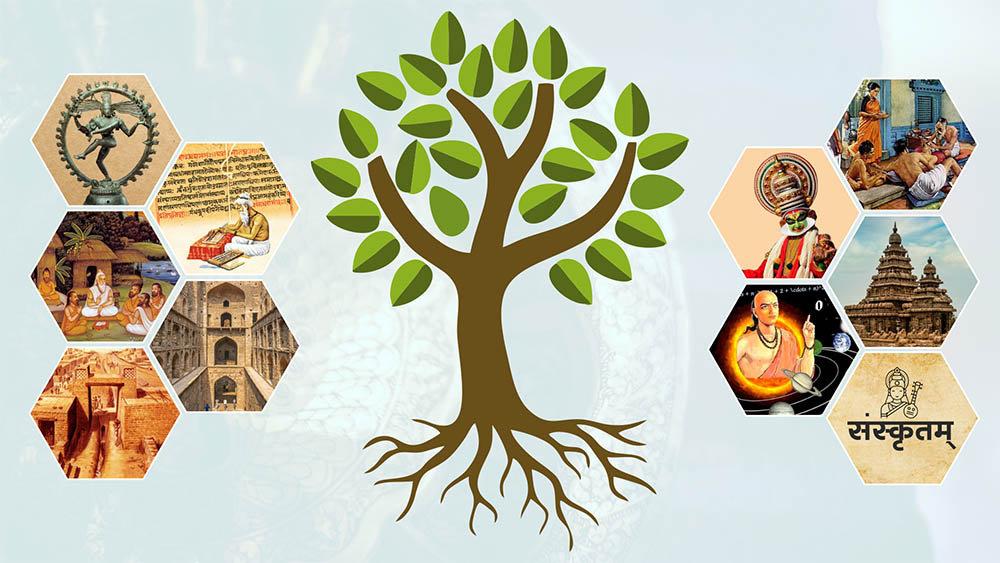Skip to main content
Introduction to IKS
Indian Knowledge Systems (IKS) - Introduction
1. Why Study IKS?

-
Long History: IKS has a very long history, tied to the enduring Indian civilization (estimated 5,000 - 8,000 years or even "time immemorial" by some indigenous sources).
-
Accumulated Knowledge: A long civilization naturally accumulates a vast body of knowledge. This is a straightforward idea.
-
Examples of Accumulated Knowledge:
-
Wootz Steel: Used in Damascus blades. Its exact composition and properties couldn't be replicated by later metallurgists.
-
Number Systems, Mathematics, Astronomy: Indian contributions in these areas percolated into the West through the Arabic region in the first millennium CE.
-
Oral Transmission: Ancient knowledge was primarily preserved and transmitted orally until relatively recent centuries (before widespread paper and printing).
-
Disruption in Transmission: Introduction of major changes in education (~200 years ago) led to an abrupt end to this oral knowledge transmission; continuity was almost lost.
2. Common Perceptions of IKS
-
Diverse Interpretations: IKS is often seen in many ways: mythology, religion, blind faith, science, or meta-science.
-
Dominant View: A prevalent view is that IKS is largely extinct, incomprehensible, uninteresting, or too difficult to understand.
-
Perceived Uses: Some see it as useful only for chanting mantras/rituals, or as mere glorification of the past, with no material benefits.
-
Skepticism: Questions are raised about its relevance to modern problems, e.g., "Will it feed the poor?".
-
Translation: Some believe translating IKS into other languages is sufficient, obviating the need to study the original texts.
3. Addressing Skepticism & Relevance of IKS
-
Indirect Benefits: IKS (like technology) can have indirect benefits.
- Example: A satellite for climate observation can indirectly improve food production through improved agriculture.
-
IKS's Potential: IKS can also offer ideas that indirectly lead to solving modern problems.
-
Avoiding the extremes: The goal isn't to just glorify the past, abandon it completely, or use it only religiously.
4. The Importance of Understanding IKS
-
Solving Old Problems
- The problems we see today (business, government, societal issues) existed in the past.
- Our ancestors found ways to solve problems, and there is value in understanding their methods.
-
Path Dependence: Progress is built on what has come before. Knowing what happened before is necessary to understand where to go.
-
Economic Security & National Pride: Protecting traditional knowledge is crucial for economic security and national pride.
-
Documentation: Documenting traditional knowledge provides evidence of prior knowledge and is important for intellectual property claims.
5. Examples of the need to study IKS

-
Neem Patent: An US company patented neem as a pesticide, despite its long-standing traditional use in India. India failed to get the patent cancelled because of lack of documentation.
-
Turmeric Patent: The US Patent Technology Office initially granted a patent for turmeric powder for wound healing, which the CSIR had to actively fight. This demonstrated that such knowledge existed before this patent.
6. Why Studying IKS is essential
-
Defining Context: IKS defines the context for various aspects of daily life.
-
Manifestation of Intellectual Achievement: It reflects the intellectual achievements of past generations.
-
Continuity of Thought: Continuity with these thoughts is necessary to make further progress.
-
Avoiding Reinventing the Wheel: It helps in avoiding unnecessary repetition of past efforts.
-
Global Intellectual Property: It is crucial for intellectual property, regulation, and patent laws, especially in a global context.
-
Identity & Culture: IKS provides a sense of identity and culture.
-
Economic Value: It preserves received wisdom and can have economic value (like patents).
7. Course Approach
-
First-Hand Understanding: The course aims to understand IKS by first looking into the primary texts.
-
Exploring New Paradigms: The goal is to explore new paradigms based on the knowledge that our ancestors accumulated.
Key Takeaways:
- IKS is not just about the past; it has relevance to present and future.
- It is vital to study the original sources of IKS.
- It is more important to critically understand IKS than to simply accept or reject it.


